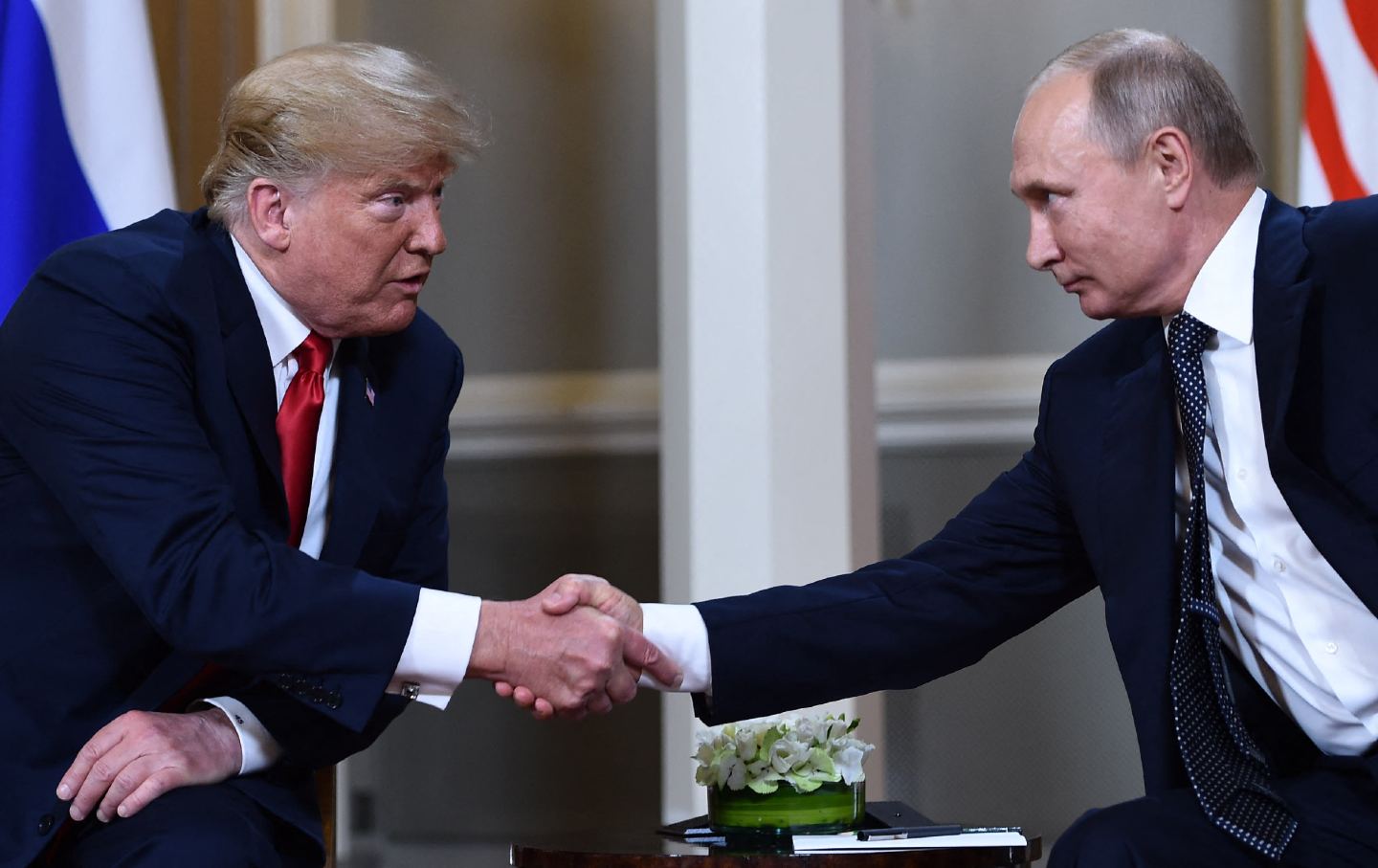Gaza: South Africa Calls In the Law
A ruling from the International Court of Justice could save Palestinian lives.
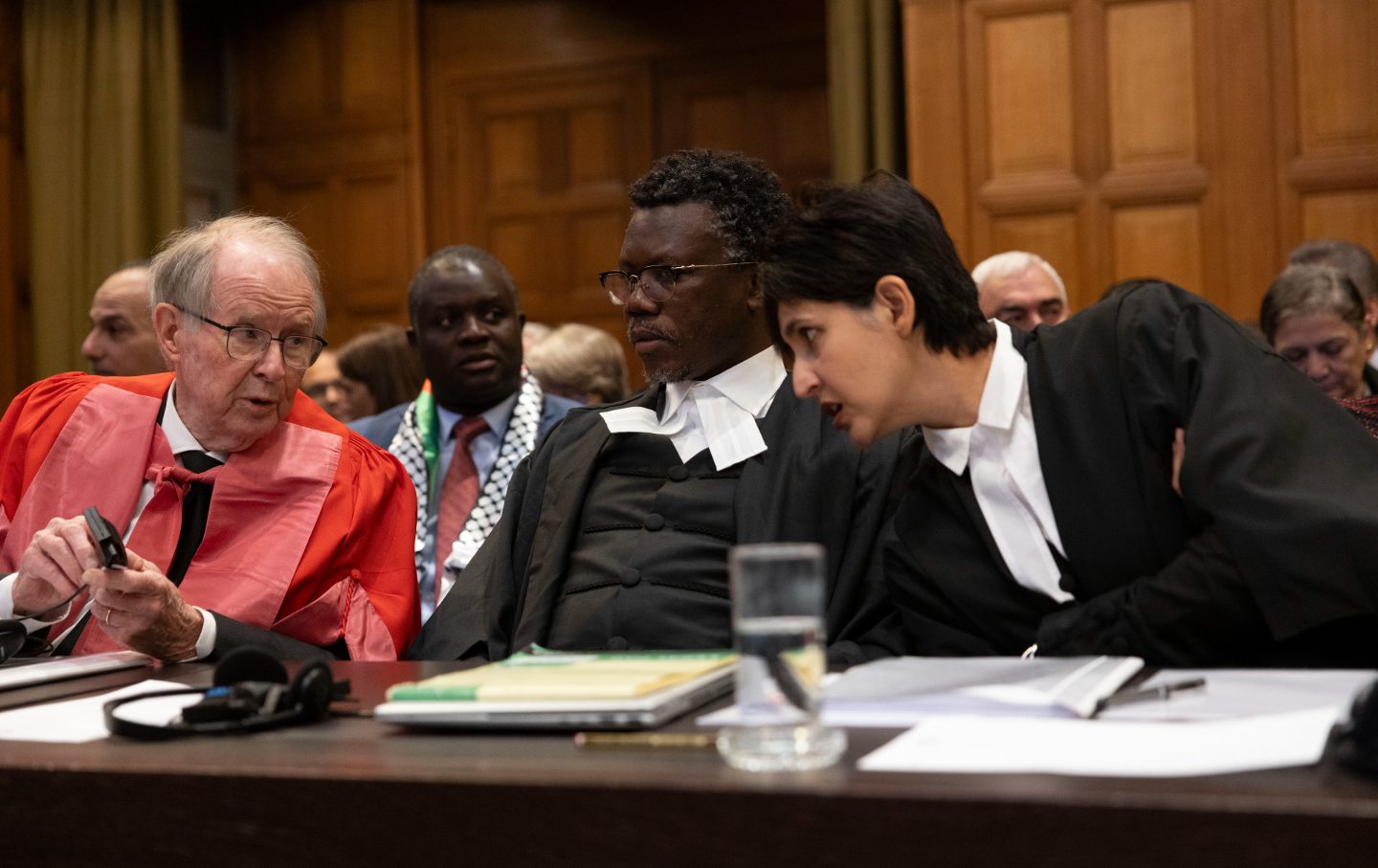
For three months, as Israel rained death and destruction on Gaza in response to Hamas’ criminal attacks of October 7, the law has seemed absent. Attempts at the UN Security Council to call for a humanitarian cease-fire have been met with a United States veto. The prosecutor of the International Criminal Court (ICC), so quick to indict Vladimir Putin for atrocities in Ukraine, appears, despite his strong warnings to both Hamas and Israel, reluctant actually to hold Israeli officials accountable for war crimes.
So South Africa’s December 29 application instituting proceedings against Israel at the International Court of Justice (ICJ) for alleged genocidal actions, and putting international law center stage, came as a surprise to our brutish world.
The ICJ, often called the “World Court,” is the United Nations’ highest judicial body, empowered to issue binding rulings on disputes between states. Its judges, elected concurrently by the UN General Assembly and the Security Council, enjoy the highest degree of legitimacy, though its orders are often ignored by powerful countries. Last year, it ordered, by 13 votes to two (with the Russian and Chinese judges dissenting), that Russia “immediately suspend” its military operations in Ukraine (Russia has not).
Until recently, the handful of cases that states brought to the ICJ each year mostly related to disputed territory or commercial interests. Human rights claims were rare, and then only between directly affected states. In 2009, however, in a case in which I was involved, Belgium sought a ruling from the ICJ that Senegal was obliged under the UN torture convention to prosecute or extradite the murderous former dictator of Chad Hissène Habré. Senegal challenged Belgium’s standing to bring the case, but the ICJ ruled that Senegal’s obligations under the convention were owed erga omnes partes—to all other states that had ratified the convention. (The ICJ granted the order and Senegal prosecuted and convicted Habré.) This dramatically widened the possibility of ICJ litigation. In 2019, Gambia invoked that precedent to charge Myanmar with violating the genocide convention in its treatment of the Rohingya. Last year, Canada and the Netherlands brought a case under the torture convention against Syria.
All of a sudden, and with the International Criminal Court unable in 21 years to convict any state official anywhere of atrocities, the ICJ is becoming an important tool for enforcing human rights.
South Africa’s filing predictably drew howls of protest from Israel’s allies who seem dedicated – at the ICJ, the ICC, the UN, anywhere– to ensuring that Israel remains above the law. National Security Council spokesman John Kirby called it “meritless, counterproductive, and without any basis in fact whatsoever.” UK Prime Minister Rishi Sunak said through a spokesperson that South Africa’s case was “completely unjustified and wrong.”
To be sure, it is not an easy case.
If the charge were war crimes or crimes against humanity, it would be a slam dunk. Unlike the International Criminal Court prosecutor, however, who could indict these crimes (but appears unwilling to do, presumably worried about the United States’ reaction), the ICJ’s jurisdiction here is only over genocide, by dint of the convention ratified by both Israel and South Africa that provides that disputes over the convention’s application can be brought to the ICJ. And genocide requires a showing that the crimes were carried out with an “intent to destroy, in whole or in part, a national, ethnical, racial or religious group, as such,” and proving that genocidal intent is notoriously difficult. Neither Amnesty International nor Human Rights Watch (which have both charged Israel with the crime against humanity of apartheid) has determined that Israel’s acts in Gaza amount to genocide.
Cases at the ICJ drag on for years, but South Africa’s application also urged the court to order “provisional measures” to protect Gazans, including by calling upon Israel to “immediately suspend its military operations in and against Gaza.” The court, mindful of the urgency of the situation, scheduled hearings a mere two weeks after the application, setting the stage for the dramatic hearings in The Hague last week.
Never in history has there been so much public attention to an international law proceeding. The legal equivalent of a soccer World Cup final, it featured two states whose peoples, as noted by South Africa’s legendary lead counsel John Dugard, “both have a history of suffering.” South Africa’s team fully seized the symbolism of the moment with powerful presentations that not only laid out the catastrophic facts—23,000 dead, 85 percent of the population displaced, infrastructure destroyed, famine and disease—but also effectively tied Israel’s brutal and disproportionate tactics and the behavior of Israeli soldiers on the ground to the incitive words of officials like Prime Minister Benjamin Netanyahu (recalling the biblical injunction of Amalek to “Spare no one, but kill alike men and women, infants and sucklings”) and Defense Minister Yoav Gallant (“Gaza won’t return to what it was before—we will eliminate everything”). These words have echoed throughout almost every sector of Israeli society.
Israel’s response the next day was more sober and procedural, not as captivating for the world audience watching live on Al-Jazeera or Sky News—a first in the annals of the ICJ—but perhaps no less effective with the judges. Israel’s war, their lawyers said, is to eliminate Hamas, not the people of Gaza. They said the widespread civilian damage was the unavoidable result of Hamas’s criminal practice of embedding itself within the civilian population, and they dismissed the “random” quotes from Israeli officials as emotional responses to the cruelty of October 7, the largest slaughter of Jews since the Holocaust, and not as reflective of state policy. (The day before the hearings, Netanyahu declared—in English—that Israel “is fighting Hamas terrorists, not the Palestinian population.”) The lawyers detailed the measures taken by Israel to minimize civilian casualties (such as extensive use of early warnings to residents) as inconsistent with an intent to wipe out the people of Gaza as such.
Popular
“swipe left below to view more authors”Swipe →The court will not make a finding at this stage as to whether Israel has violated the genocide convention. What it will decide in the next weeks is whether to grant any of the binding provisional measures sought by South Africa, such as measures that are especially critical to the convention’s aim of preventing genocide. Unlike preliminary injunctions in US courts, which require both a risk of irreparable harm and a likelihood of success on the merits of the underlying claim, the ICJ standard is only that the applicant’s claim be “plausible.”
The judges may balk at ordering Israel to cease all military operations, if only because Hamas, whose criminal actions started the current war, is not before the court to be similarly bound. Under the genocide convention, however, the court needs do what it can at this stage to reduce the risk of genocide, and if the court finds it plausible that Israel’s military campaign is motivated by genocidal intent, can it allow such a risk? Some have suggested creatively ordering a cease-fire tailored to any actions on the part of Hamas and even ordering South Africa to try to convince Hamas to hold fire and release the hostages. The court can also order Israel to refrain from specific kinds of military acts harming civilians, to facilitate humanitarian aid, and to repudiate and punish Israelis who publicly incite genocide (also a crime under the convention). Although Netanyahu says, “Nobody will stop us—not [even] The Hague,” Israel devoted considerable time at the hearings to challenging any and all provisional measures, keenly aware that a ruling that it is plausibly committing genocide will increase pressure to modify its actions and make it far more difficult for countries such as the United States to continue unconditional military assistance, lest they be accused of complicity.
South Africa’s counsel Adila Hassim argued that “nothing will stop this suffering, except an order from this court.” That puts a heavy burden on the ICJ to show that, now that the law has been invoked, it can actually make a difference.
We cannot back down
We now confront a second Trump presidency.
There’s not a moment to lose. We must harness our fears, our grief, and yes, our anger, to resist the dangerous policies Donald Trump will unleash on our country. We rededicate ourselves to our role as journalists and writers of principle and conscience.
Today, we also steel ourselves for the fight ahead. It will demand a fearless spirit, an informed mind, wise analysis, and humane resistance. We face the enactment of Project 2025, a far-right supreme court, political authoritarianism, increasing inequality and record homelessness, a looming climate crisis, and conflicts abroad. The Nation will expose and propose, nurture investigative reporting, and stand together as a community to keep hope and possibility alive. The Nation’s work will continue—as it has in good and not-so-good times—to develop alternative ideas and visions, to deepen our mission of truth-telling and deep reporting, and to further solidarity in a nation divided.
Armed with a remarkable 160 years of bold, independent journalism, our mandate today remains the same as when abolitionists first founded The Nation—to uphold the principles of democracy and freedom, serve as a beacon through the darkest days of resistance, and to envision and struggle for a brighter future.
The day is dark, the forces arrayed are tenacious, but as the late Nation editorial board member Toni Morrison wrote “No! This is precisely the time when artists go to work. There is no time for despair, no place for self-pity, no need for silence, no room for fear. We speak, we write, we do language. That is how civilizations heal.”
I urge you to stand with The Nation and donate today.
Onwards,
Katrina vanden Heuvel
Editorial Director and Publisher, The Nation
More from The Nation

Warning From the Past Warning From the Past
In a new film, journalists confront a dictator.

The Case Against Joe Biden for Complicity in Genocide The Case Against Joe Biden for Complicity in Genocide
The ICC has applied for an arrest warrant for Benjamin Netanyahu. But Israel’s assault on Gaza has been made possible by US support.
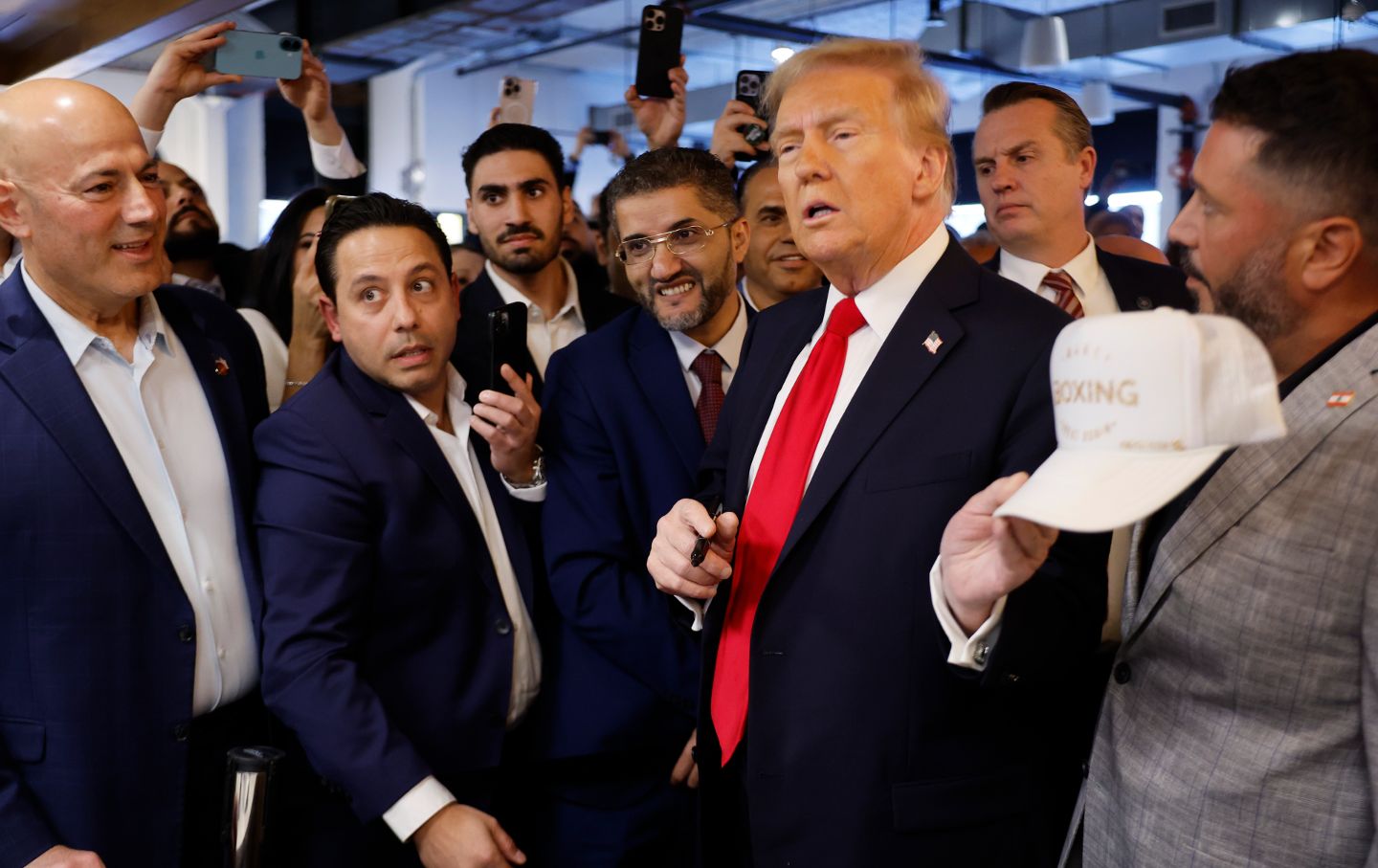
Gazans Heard Trump's Promises. Now They Want Him to Keep Them. Gazans Heard Trump's Promises. Now They Want Him to Keep Them.
Trump made a direct pitch to end the war on Gaza. The people still living there were listening.
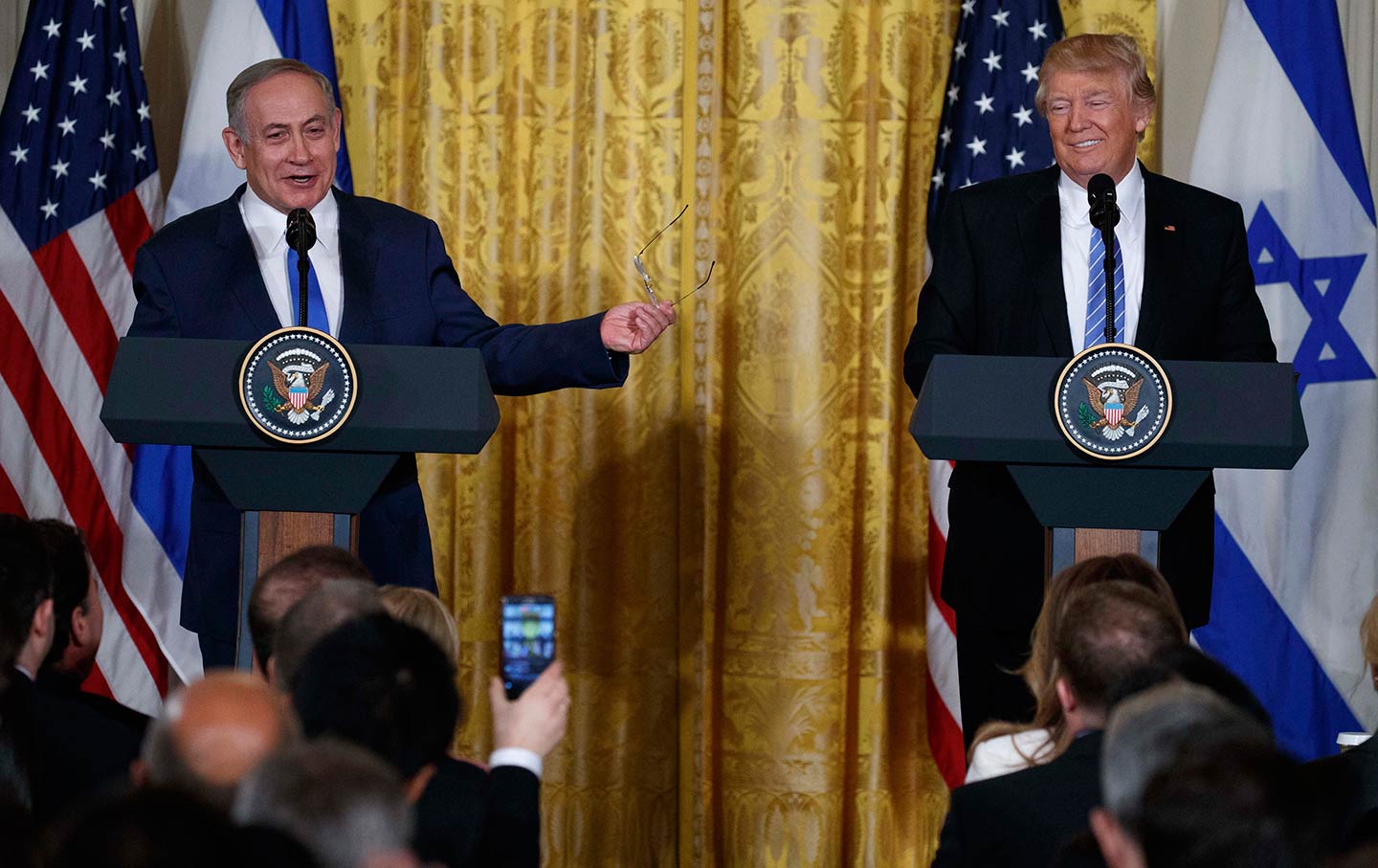
The Fallout of Biden’s Middle East Policy Is Now Trump’s Responsibility The Fallout of Biden’s Middle East Policy Is Now Trump’s Responsibility
In Trump’s hands, the country's diplomatic strategy in the Middle East can only get worse.
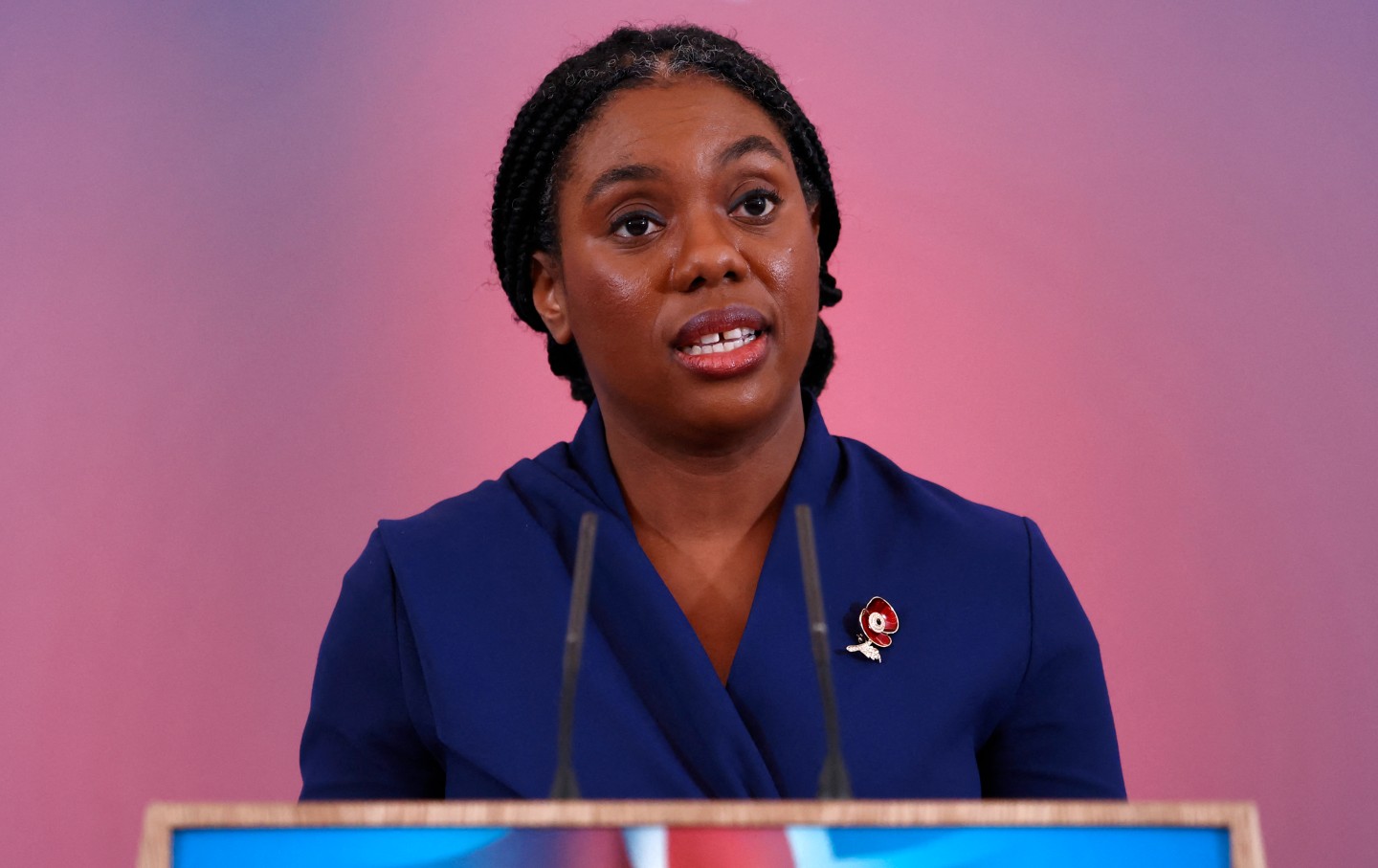
The New Face of British Conservatism is Black—and Female The New Face of British Conservatism is Black—and Female
The London-born daughter of Nigerian parents presides over the ruins of 14 years of Tory rule. Can her brand of nativism-lite bring the party out of the wilderness?

